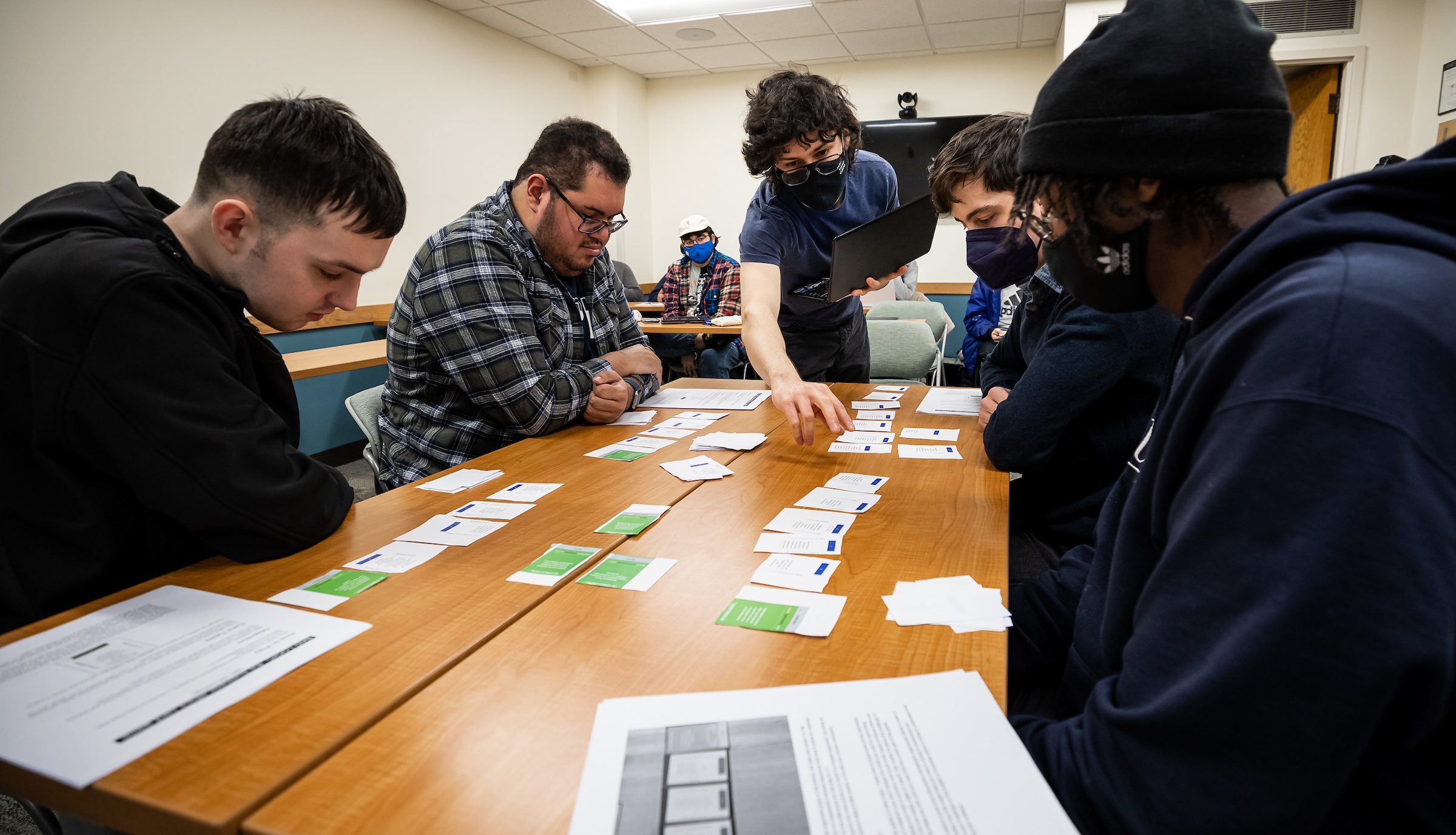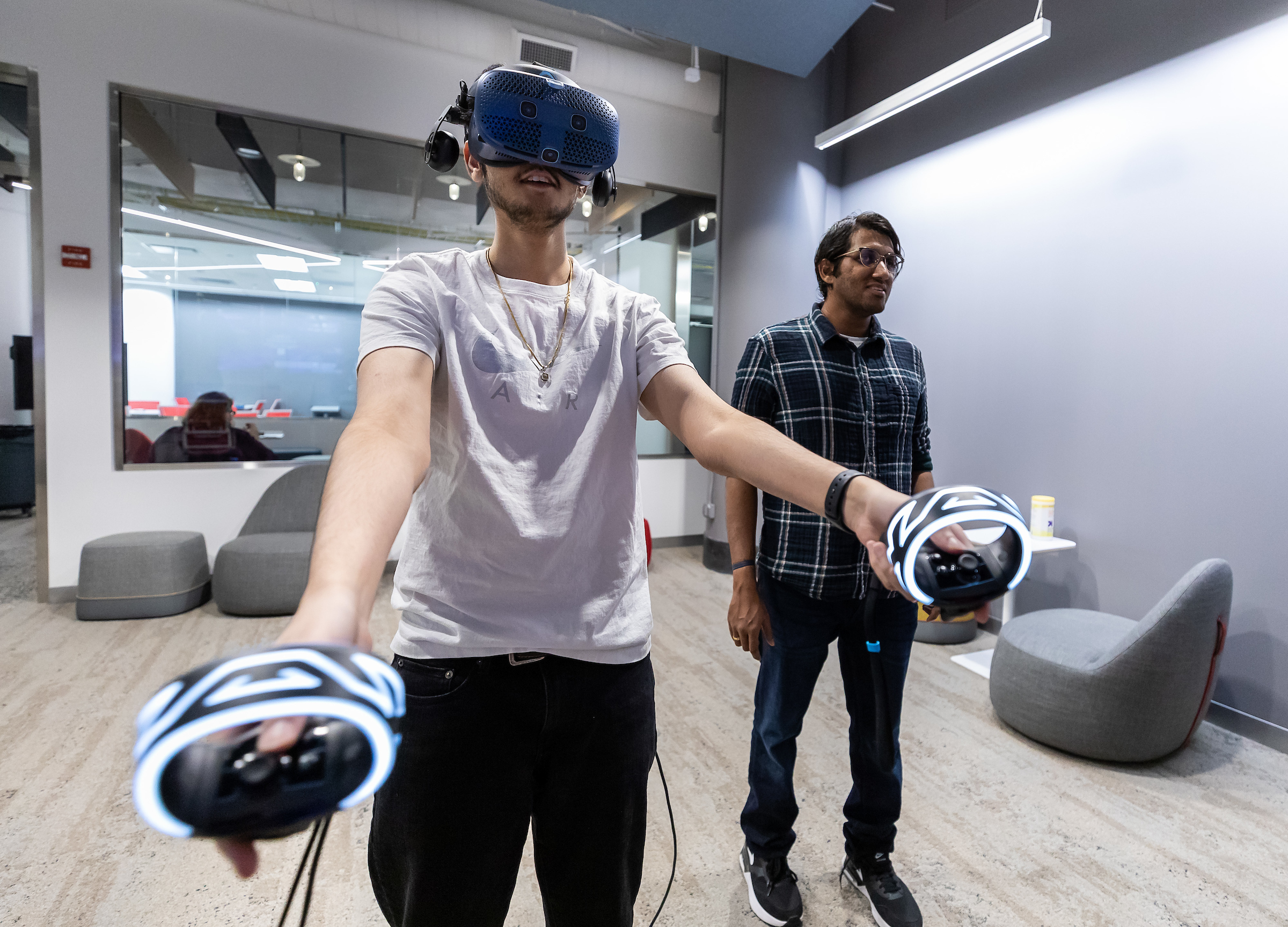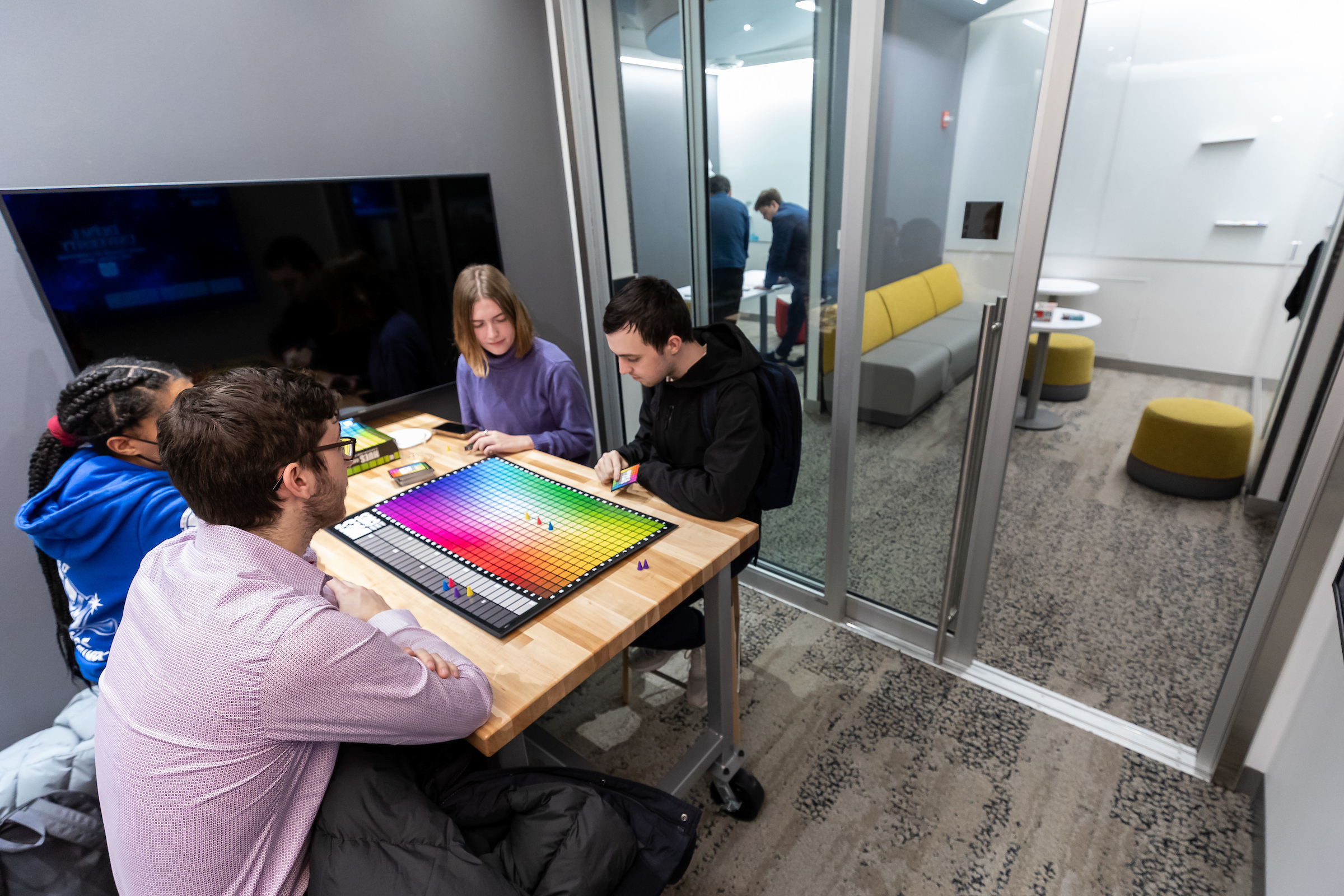 DePaul students review games developed in Michael DeAnda's play-testing course in the Jarvis College of Computing and Digital Media. (DePaul University/Jeff Carrion)
DePaul students review games developed in Michael DeAnda's play-testing course in the Jarvis College of Computing and Digital Media. (DePaul University/Jeff Carrion)
DePaul's game design degree programs are among the best in the country, according to 2023 rankings from the Princeton Review and Animation Career Review. Student success and faculty innovation in the
Jarvis College of Computing and Digital Media are among the factors driving a rise in the rankings.
The Princeton Review places DePaul among the Top 50 Undergraduate Schools for Game Design in 2023, rising to the 33rd spot from 39th last year. DePaul is also among the Top 25 Graduate Schools for Game Design, earning the 25th spot on the list again this year.
Animation Career Review ranks DePaul as the No. 1 game design school in the Midwest. In its national ranking, reviewers moved DePaul to 11th best in the country, up from 14th last year. Academic reputation, the depth and breadth of the program and employment data are among the criteria for this ranking.
Student designers bring games to public
"We encourage students to showcase their work and submit to competitions," says Caleb Foss, co-chair of the game design program. "In capstone and beyond, students continue developing their games for release and presentation in public-facing venues."
Students also lead the DePaul Fundamental Research in Academic Gaming group, known as DeFRAG, and regularly host events, including a recent industry night focused on women in game development.
 Students play a virtual reality game during the grand opening celebration of the Jarvis Student Center for Innovation and Collaboration. (DePaul University/Jeff Carrion)
Students play a virtual reality game during the grand opening celebration of the Jarvis Student Center for Innovation and Collaboration. (DePaul University/Jeff Carrion)
Shipping games from the classroom to the public is at the foundation of the program. DePaul's Game Design Program is often associated with "Octodad," which began as a student game in 2010, became an
Independent Games Festival Student Finalist in 2011, and ultimately led to the formation of the game studio Young Horses.
More recently, a development team of DePaul students and alumni created "Broombot Battlegrounds," which began as a DePaul capstone project and was released on the Steam platform. The team also presented their game at IndieCade Horizons, and they will present at the 2023 PAX East gaming conference.
Many faculty lead or contribute to programs, studios and
labs that engage students in hands-on learning, including
the DePaul Originals Studio, an initiative from faculty members Allen Turner and Will Meyers where students work as they would in a professional game development team to design, develop and ship video games. Students also have access to technology and industry leaders in the Jarvis Student Center for Innovation and Collaboration, led by
game developer experience designer Josh Tsui.
Faculty innovation drives academic excellence
"Our faculty teach innovative, forward-thinking design curricula while preparing students for positions in the industry," says Michael DeAnda, co-chair of the game design program.
DeAnda's research ponders how games may be used to challenge normalized understandings of gender and sexuality. Along with a collaborator, he released and shipped "Golden Mart," a tabletop role-playing game, after
a successful Kickstarter campaign.
Foss is an active member of the creative open-source software community and serves as a Google Summer of Code mentor. Foss brings these insights into the Playgramming class, which introduces programming to designers.
With the recent attention to the use of gaming software in animation and film, specifically the use of the 3D creation tool Unreal in "The Mandalorian," Meyers will teach a class that guides both artists and filmmakers in using assets from 3D software programs Maya, Blender and Substance, particle effects and lighting as part of post-processing in Unreal Engine.
 Students play a game in the Jarvis Student Center for Innovation and Collaboration. (DePaul University/Jeff Carrion)
Students play a game in the Jarvis Student Center for Innovation and Collaboration. (DePaul University/Jeff Carrion)
Not every game is designed to be digital (though many are). Assistant Professor Lien Tran teaches a course on Analog Game Production and also leads
Matters At Play, a transdisciplinary design lab partnering in the creation of interactive advocacy solutions for positive social transformations. Tran has also published several op-eds this year as an
OpEd Project Public Voices Fellow.
"Together, these various projects demonstrate the breadth of our program," Foss and DeAnda wrote to Newsline. "DePaul faculty are helping to elevate students' abilities. They graduate with a complete education in designing games in different media and thinking critically about teamwork."
Learn more about
game design and development at DePaul.
Kristin Claes Mathews is assistant director of news and integrated content.